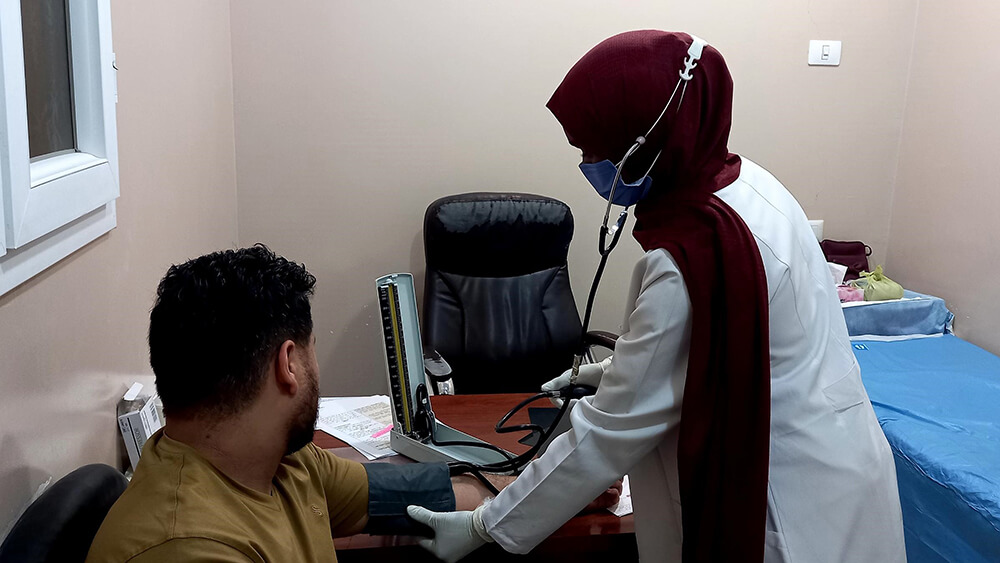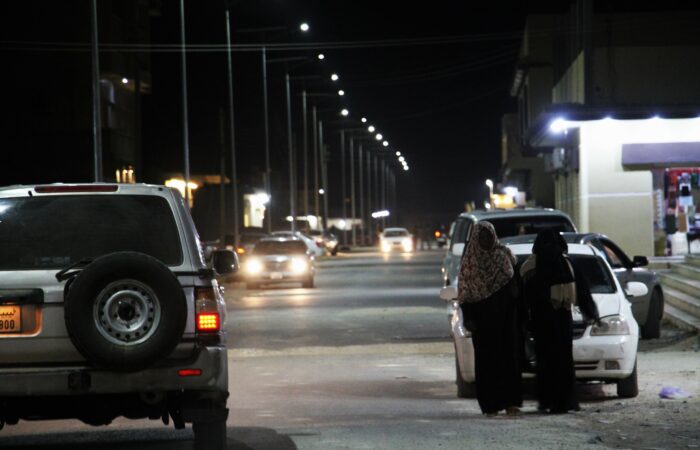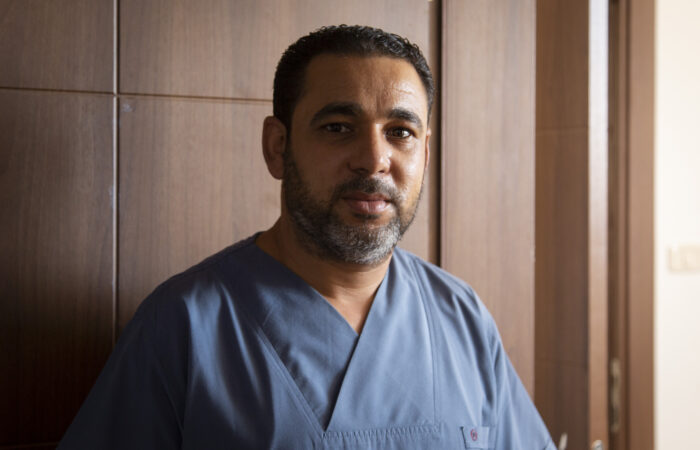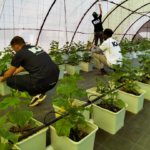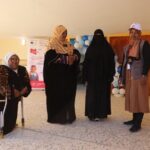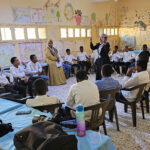I was born and raised in Libya. My father travelled to Libya during the early 90’s to find a job and build a new life. A few years later, with a job secured in Libya, he returned to his hometown in Sudan to get married. Soon after marrying my mother, they travelled back to Libya together.
As a Sudanese family living in Libya, our life was good. We never worried about things like providing for the family or being able to get medical services if we needed them. My siblings and I would go to school with nothing to worry about.
My life changed drastically in March 2019 when my father had a stroke. I suddenly found myself facing new responsibilities and nightmares. I remember feeling lost and confused. As a family, we did not know what to do. Well aware that private healthcare is extremely expensive, we first took my father to a few different government health facilities in Bani Walid, but they had no medicines. They could not even diagnose him properly, as they did not have the correct equipment, such as an MRI scanner or blood testing capabilities.
We then took my father to Tripoli, hoping we could find a public health facility that had a neurologist and better health services. Sadly, we had no luck. With no choices left, we took him to a private clinic where my father stayed for 15 days. There, he was monitored, given pain relief, and oxygen. When the hospital bill came we were shocked. The bill was so expensive that in order to cover the costs, we had to use our entire family’s savings, as well as borrow some money. In the meantime, my father was not recovering, so we travelled west to Al Zawia, after being given information about a health facility that might be able to help. But it was too late, my father could not fight any further. He passed away in Al Zawia at the end of March 2019.
While we were grieving the loss of my father, my mother got sick as well. I remember immediately facing the same feelings of fear and anxiety of not having access to proper health care in Bani Walid. My mother was admitted to Bani Walid Hospital, but she was only given a bed and nothing else. We were yet again forced to seek private healthcare to have access to blood tests, MRI scan, and any other medical needs, as well as privately purchasing all the medications she needed.
Thankfully, the Sudanese community helped us by collecting donations to help cover my mother’s treatment expenses. We then travelled to Misrata to see a few private facilities that we thought could help us. However, her health did not improve and she faced the same tragic fate as my father. We lost my mother in August 2020.
I felt like I had lost everything in my life. I was devastated. Nevertheless, it is only in our darkest moments that we discover the hidden strengths we have. I knew life had to go on and so I took a course and started working as a nurse in a private clinic, while my brother left university and started working as a taxi driver. This is not the life we imagined for ourselves, but we have to be strong for each other.
In 2021, I heard about the Baladiyati Programme and it immediately grabbed my attention because it focuses on improving access to better health services for all communities in Libya, including my Sudanese community. I was so happy when I was offered the role as a Community Outreach Volunteer. This job gives me the opportunity to make sure that what happened to my parents does not happen to any others in my community. I was meeting with families who were going through similar challenges to mine, and now I am able to help them.
“I am happy that I can contribute to saving or improving someone else’s life, whether by providing health advice on treating a chronic disease or simply by referring a person to the right health facility” – Noor. The Baladiyati Programme (Recovery, Stability, Socio-Economic Development in Libya) is funded by the European Union through the EU Trust Fund – North Africa Window and implemented jointly by AICS, UNDP and UNICEF to improve access to basic services in 27 municipalities all over Libya. Within this framework IRC, with funding from AICS, carry out activities in 4 municipalities (Misrata, Alkhoms, Zintan and Bani Walid) with a specific focus on upgrading health services with needed equipment and supplies, as well as training health professionals and local volunteers like Noor.
This story was written by AICS based on content collected on ground by IRC
Photo credit: IRC

